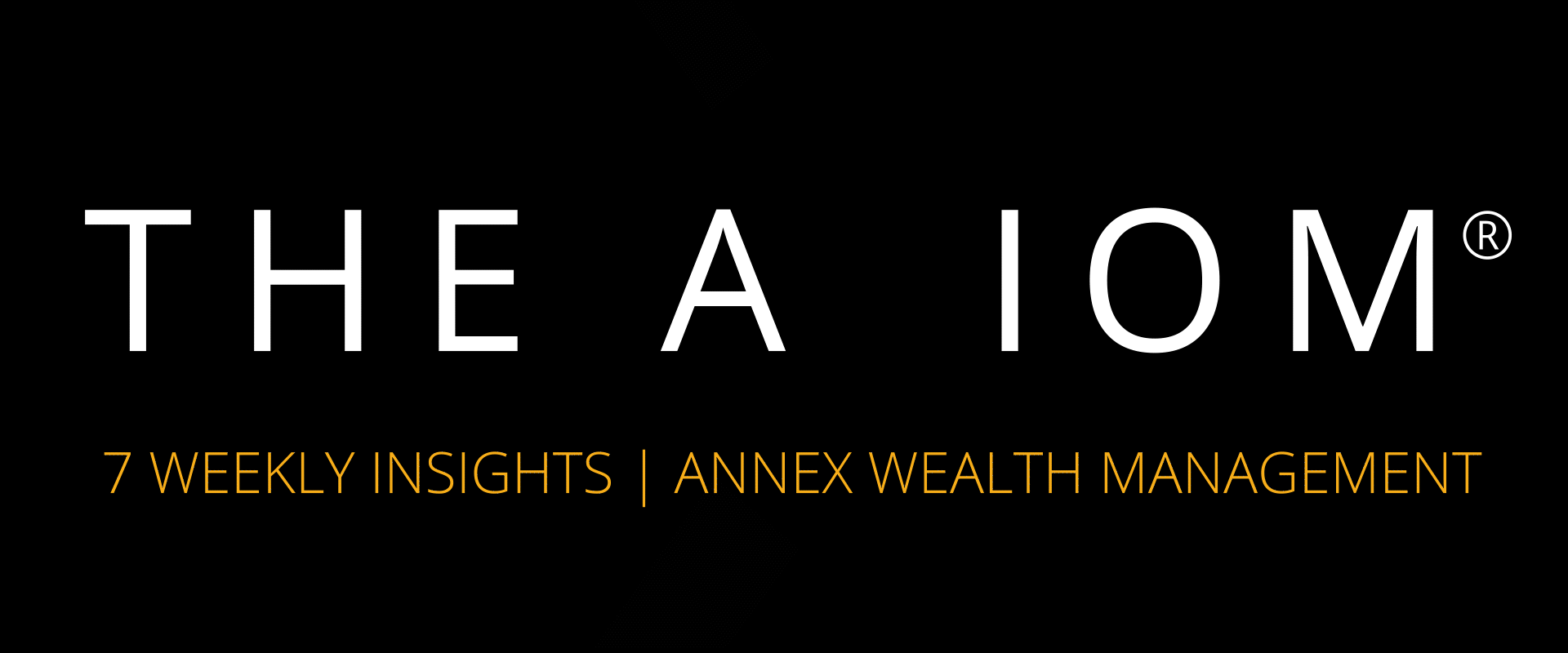
The 2- and 10- year bond curve remain inverted, and rising. How will the Fed react to good economic data? Analysts now wait to see how many rate increases are in store for the rest of 2023. Annex Wealth Management’s Dave Spano and Derek Felske discuss.

Last week, we asked Axiom readers if the SECURE Act 2.0’s new Required Minimum Distribution (RMD) age affected their financial planning. As usual, our readers showed insight and savvy – 65% indicated the change wouldn’t affect their plan.
Here’s what Eric Strom, CFP®, EA has to say about the new RMD age:
“The backing up of 72 to 73 is only a minor change. But if you zoom out and consider that it used to be 70 1/2 and will eventually be 75 (under current law), that is a significant change – but only for the 20% of people who are only taking the minimum required distributions. For those people the backing up gives more flexibility to do creative tax planning after retirement.”
If you have any questions on Required Minimum Distributions, our team is here to help. Reach out to Annex Wealth Management today to get started!
BACK TO TOP ↑
Evaluate HSAs Available To You

You’ve heard the immortal words of Benjamin Franklin: “In this world, nothing can be said to be certain, except death and taxes.” At Annex Wealth Management, we understand Franklin’s point – however, we’d contend healthcare expenses in retirement are just as certain.
When preparing for retirement, it’s important to plan for healthcare expenses. There are tools available to help make saving for healthcare more efficient. Take the Health Savings Account (HSA), a special type of account available only when you have a high-deductible health insurance plan that is HSA-compatible. You may think that HSAs are only for younger people, but folks of all ages have discovered the benefits of this tool.
This week’s MoneyDo task: Evaluate the health insurance plans available to you and consider switching to an HSA-compatible health insurance plan.
Consider The Advantages
HSAs are very powerful savings tools. It is often said that they are “triple tax advantaged.” In fact, they are the only such account to have this unique combination of tax benefits. Here are the three levels of tax advantage:
- Contributions are pre-tax, so the contribution is deductible on the current year tax return
- Contributions grow tax-free
- Withdrawals are tax-free, if used for HSA-approved medical expenses
The benefits of Health Savings Accounts extend beyond their “triple tax advantage.” The tax code doesn’t require earned income, nor does it impose income limits to contribute, like other tax advantaged savings accounts. Essentially, everyone with a qualified health insurance plan can contribute.
HSAs do have annual contribution limits. For 2023, an individual can contribute up to $3,850, while a family can contribute $7,750. For those over the age of 55, an additional $1,000 “catch up” contribution is allowed.
Review Compliant Plans
As you begin evaluating your health insurance plans, you might be wondering what criteria are used to determine if an option is HSA-compliant. Here are the rules for 2023:
- The deductible must be at least $1,500 for an individual or $3,000 for a family
- Yearly out-of-pocket maximum expenses can’t exceed $7,500 for an individual or $15,000 for a family
- Generally, a health plan (including a Marketplace plan) which only covers preventive services before the deductible.
Keep in mind – Medicare is NOT an HSA-compatible plan, and special rules apply to the year in which you transition to Medicare. If you have questions on HSAs and Medicare, we’d be happy to help.
Evaluate Expenses
As you evaluate, consider what expenses you’ll encounter, and if those expenses would be approved HSA expenses. Generally, if the expense is considered deductible on your current year return, then it is also an approved medical expense for HSA purposes. Examples can be found in IRS publication 502. (https://www.irs.gov/forms-pubs/about-publication-502)
HSA Tips
HSAs Work Best When You Let Them Grow
As you plan and evaluate, keep in mind that an HSA is a very powerful savings tool and tax-free growth is one of the reasons they’re so attractive. Growth takes time. A common approach with an HSA is to contribute and then take withdrawals to pay for the current year’s medical expenses (treating the HSA like a flexible spending account). This may be the best option for those with tighter cash flow. However, this method isn’t optimal because the account doesn’t have the opportunity to grow.
Instead, consider paying for medical expenses from a non-HSA account, leaving the HSA to grow tax-free until retirement. Save your receipts, because you can always reimburse yourself for those expenses in a future year, after growth has occurred. If you follow this strategy, check with your administrator to see if the HSA funds can be invested for long-term growth, rather than sitting in a cash-type account.
Review Non-Medical Withdrawal Requirements
Even if your HSA grows beyond your healthcare liabilities in retirement, you can always withdraw for non-medical related expenses upon attainment of age 65. The caveat is that you’d have to pay income tax on the withdrawal. Non-healthcare withdrawals after the age of 65 would be treated similarly to IRA distributions.
Consider How Your Estate Should Deal with Your HSA
While it is a good course to allow your HSA to grow until retirement, it isn’t a good idea to leave this type of account to your heirs. A spouse will be able to continue the tax advantages associated with the HSA that you enjoyed during your lifetime. However, a non-spouse individual is unable to “rollover” the funds and will be required to immediately recognize the ordinary income. Unlike IRA distributions, there is no 10-year distribution rule.
Let us Know if You Need Help
This week’s MoneyDo is longer than most – but that’s because there’s so much to learn about this powerful financial planning tool. Our planning team at Annex Wealth Management incorporates HSAs into financial plans whenever possible. As you evaluate your situation to see if an HSA is right for you, make sure to bring questions to an advisor you can trust.
BACK TO TOP ↑
Annex Wealth Management’s Sarah Kyle and Matt Morzy answer several Ask Annex questions.
Do you have a question for Annex Wealth Management? Drop it here: annexwealth.com/ask
BACK TO TOP ↑

BACK TO TOP ↑
BACK TO TOP ↑